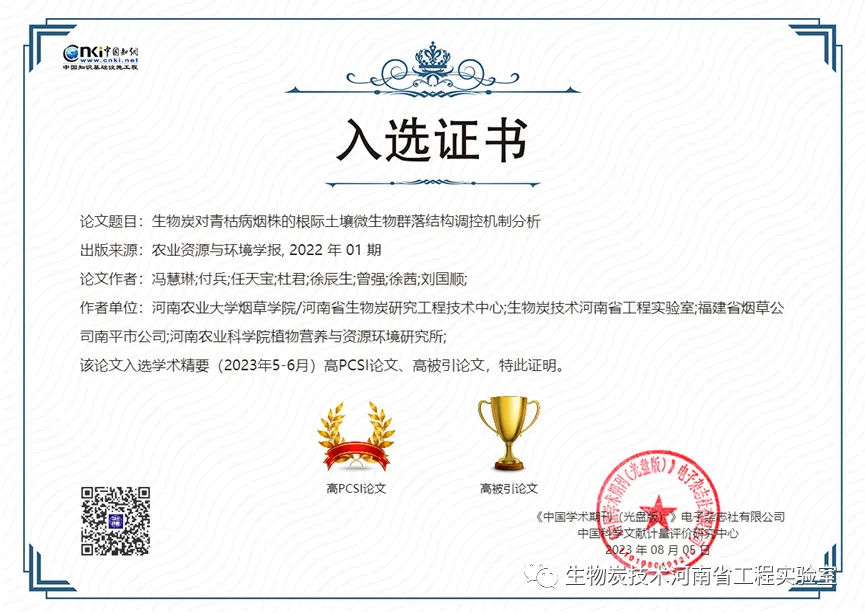
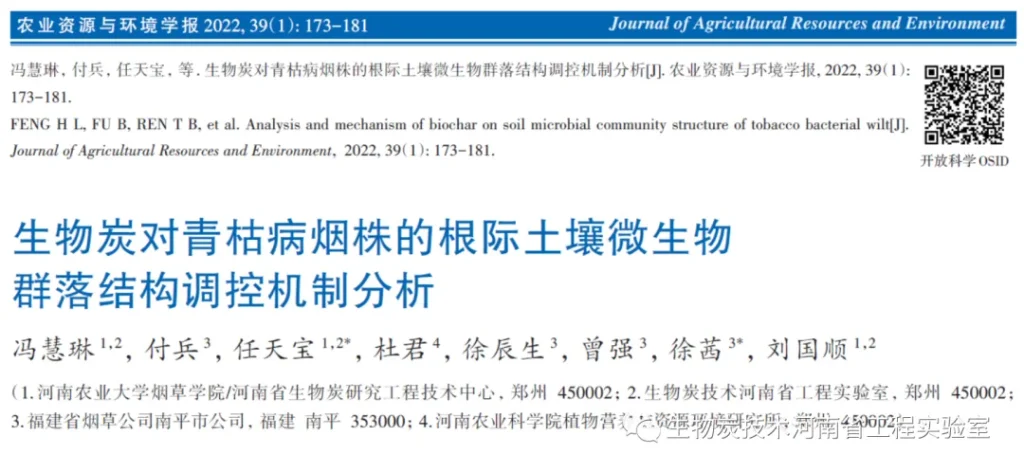
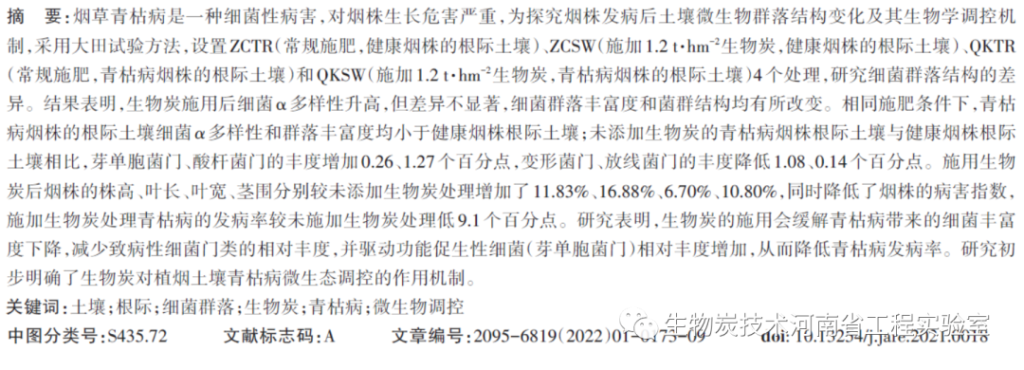
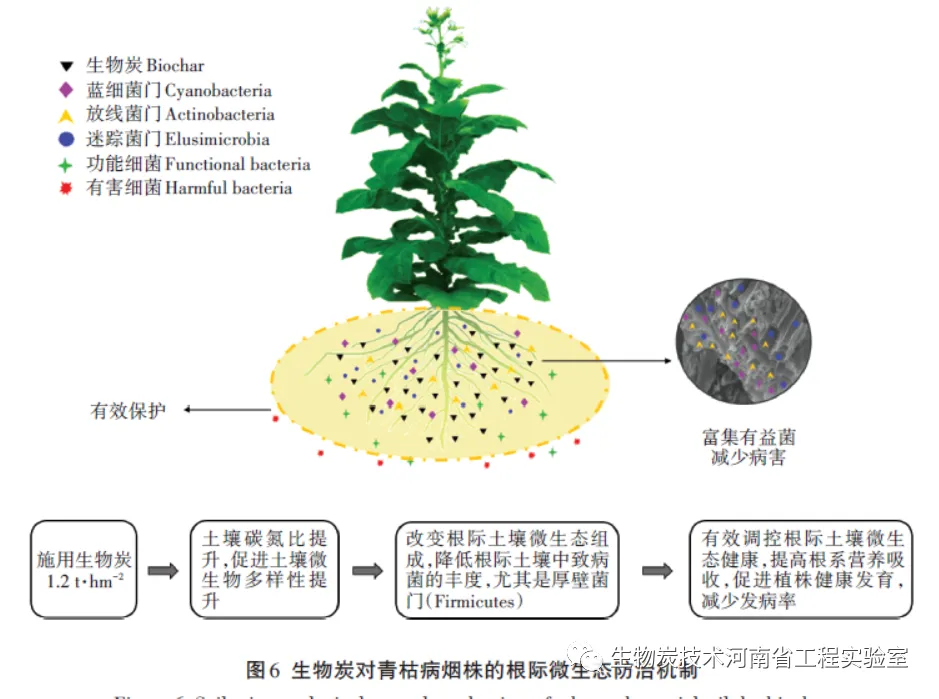
Recently, CNKI’s Academic Essentials Database (https://xsjy.cnki.net) released high-influence papers for July-August 2023, selecting the top 1% of papers in each discipline based on citation frequency, download frequency, and PCSI index (Paper Citation Standardized Index), namely highly cited papers and high PCSI papers. “Analysis of the Regulatory Mechanism of Biochar on the Rhizosphere Soil Microbial Community Structure of Tobacco Plants Infected with Bacterial Wilt” (published in the Journal of Agricultural Resources and Environment, 2022, Issue 1) was selected as a high-influence paper in CNKI, namely a highly cited paper, a high-download paper, and a high PCSI paper.
Ⅰ. Research Background
In recent years, soil health issues have received increasing attention. Unhealthy soil can lead to the occurrence of soil-borne diseases, causing harm to plants. Scholars have found that soil health depends on the functional diversity of soil microorganisms, which can regulate soil microecological balance and help maintain soil health. The rhizosphere—the microzone where plant roots contact soil microorganisms—allows soil microbes to utilize plant residue decomposition products and root exudates to produce carbon and nitrogen for their vital activities, while also decomposing soil organic matter to release nutrients for plants, ensuring healthy growth. The mutually beneficial coexistence between microorganisms and plants favors the balance of the soil microecosystem, thereby promoting soil health. The complex system formed by the structure and function of microbial communities and their dependence and mutual restriction with hosts is called the microecosystem, and microecological balance is a fundamental prerequisite for the health of living organisms.
In recent years, numerous studies have shown that adjusting fertilization methods and regulating soil microecological balance can inhibit pathogen reproduction and control soil-borne diseases. Research indicates that biochar can regulate the soil microecological environment. Based on this, this study compared the differences in rhizosphere soil bacterial community structures between tobacco plants infected with bacterial wilt and healthy plants under different fertilization conditions, clarified the regulatory mechanism of biochar on rhizosphere soil microecology, and laid a foundation for using biochar to regulate the rhizosphere soil microecological environment, promote soil health, and prevent tobacco bacterial wilt.
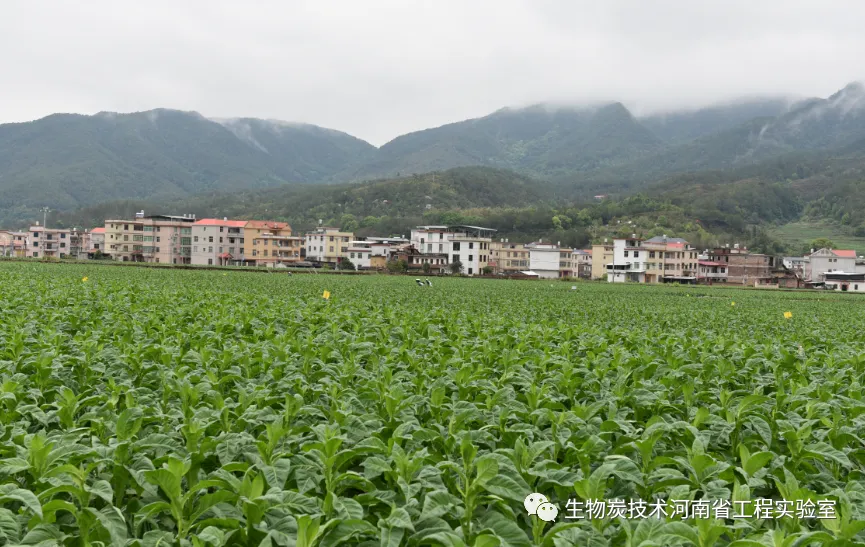
Ⅱ. Materials and Methods
The experiment was conducted from February to October 2019 in Yanshan Town, Shaowu City, Nanping City, Fujian Province. The tobacco area uses a tobacco-rice rotation system, with paddy soil as the soil type. The basic physicochemical properties of the surface soil (0-20 cm) were: pH 6.29, organic matter 18.67 g·kg⁻¹, available phosphorus 21.34 mg·kg⁻¹, available potassium 123.56 mg·kg⁻¹, and total nitrogen 0.19 g·kg⁻¹. The tested flue-cured tobacco variety was K326, provided by the Shaowu City Company of Nanping City, Fujian Province. The biochar used in the experiment was prepared from peanut shells as raw material through low-oxygen continuous carbonization at 380-400°C for 20 minutes, then crushed and sieved through a 10-mesh sieve. Its basic physicochemical properties were: specific surface area 16.71 m²·g⁻¹, bulk density 0.21 g·cm⁻³, pH 9.15, total carbon 524.10 g·kg⁻¹, and total nitrogen 2.30 g·kg⁻¹, provided by the Henan Biochar Engineering Technology Research Center.
The experiment designed four treatments: ZCTR (conventional fertilization in healthy soil), ZCSW (healthy soil with 1.2 t/hm² biochar), QKTR (conventional fertilization in bacterial wilt-affected soil), and QKSW (bacterial wilt-affected soil with 1.2 t/hm² biochar). Each treatment received conventional fertilization: 525 kg/hm² tobacco-specific fertilizer, 675 kg/hm² sesame cake fertilizer, 459 kg/hm² calcium magnesium phosphate fertilizer, 187.5 kg/hm² magnesium hydroxide, 345 kg/hm² potassium nitrate, and 300 kg/hm² potassium sulfate, with a N-P-K ratio of 1:0.78:2.87. All materials were applied in strips one day before ridging. After applying biochar, other materials were mixed and spread on top of the biochar. The tobacco planting row spacing was 1.2 m, and plant spacing was 0.5 m. Protection rows were set around the experimental field, and field cultivation management followed local high-quality tobacco leaf production technical specifications.
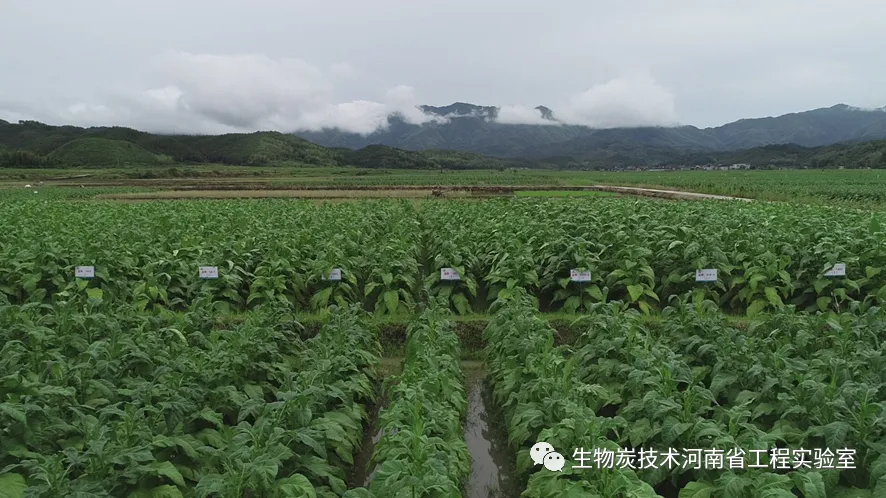
Ⅲ. Results and Analysis
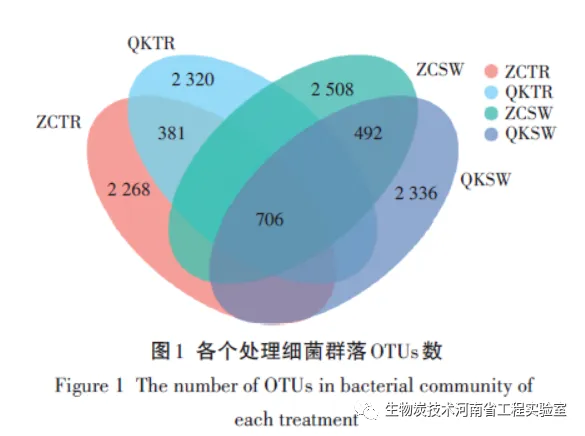
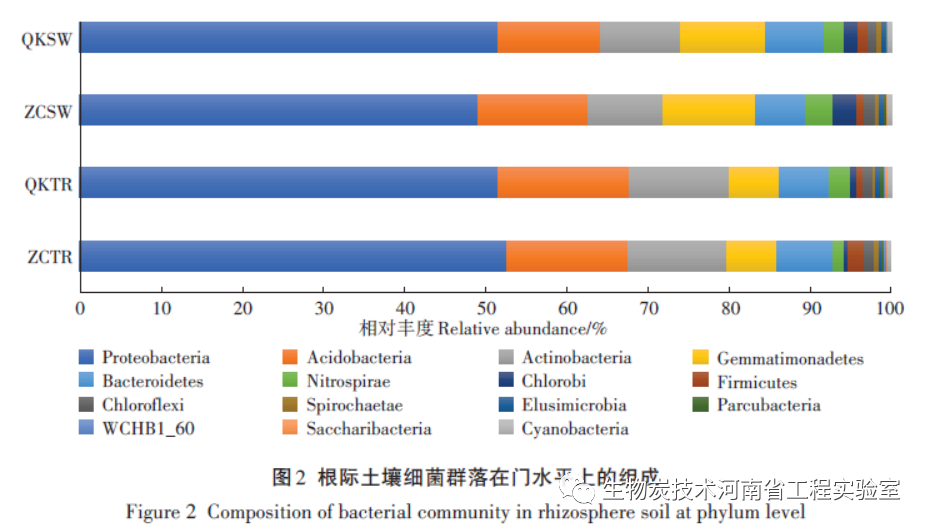
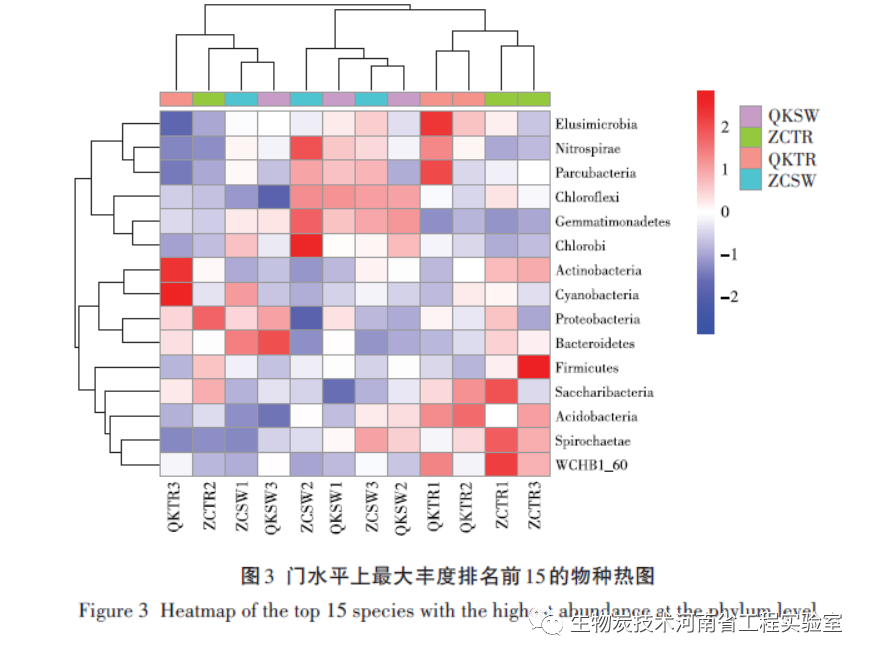
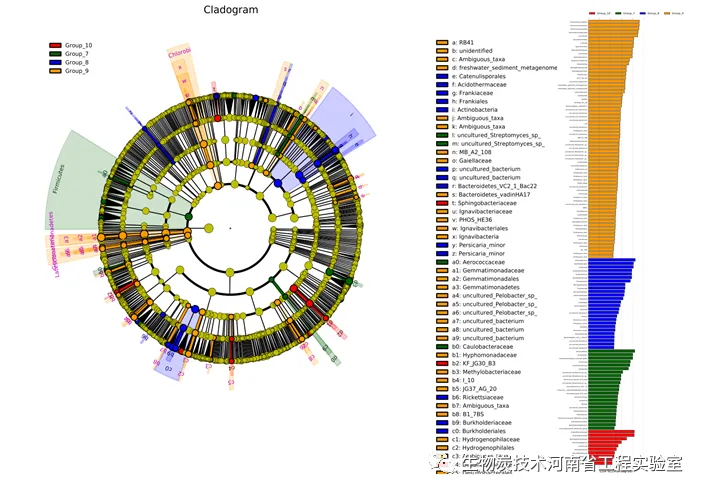
Figure 5. LEfSe Analysis of Rhizosphere Soil Bacterial Communities
Tobacco bacterial wilt reduces soil bacterial diversity and richness, decreases the number of original beneficial bacteria, and increases the relative abundance of bacteria associated with bacterial wilt, such as Firmicutes WCHB160, Chloroflexi, and Proteobacteria. Biochar effectively improves the rhizosphere soil bacterial community structure, enhances bacterial diversity, enriches rhizosphere soil with bacteria beneficial to soil and plant health, constructs a healthy soil microecosystem, maintains microecological balance, promotes healthy tobacco plant development, and reduces the incidence of bacterial wilt.
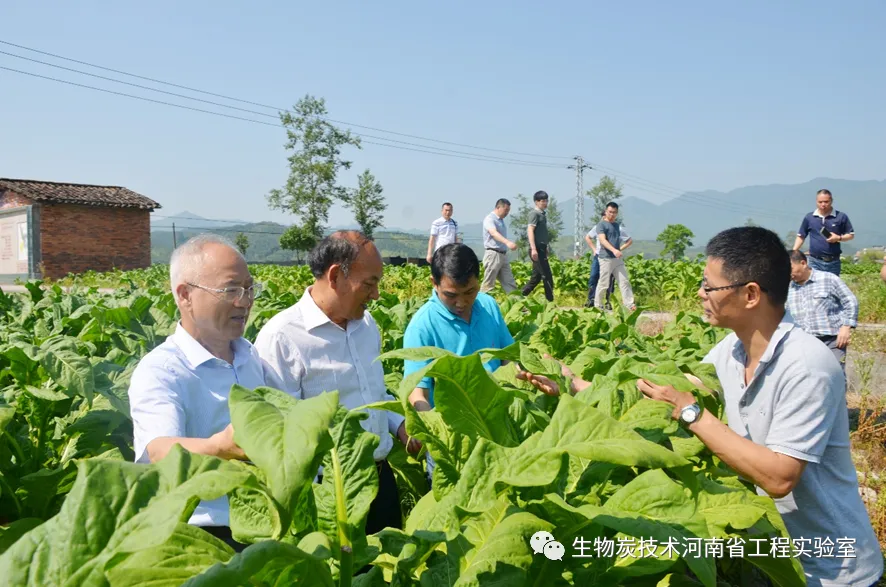
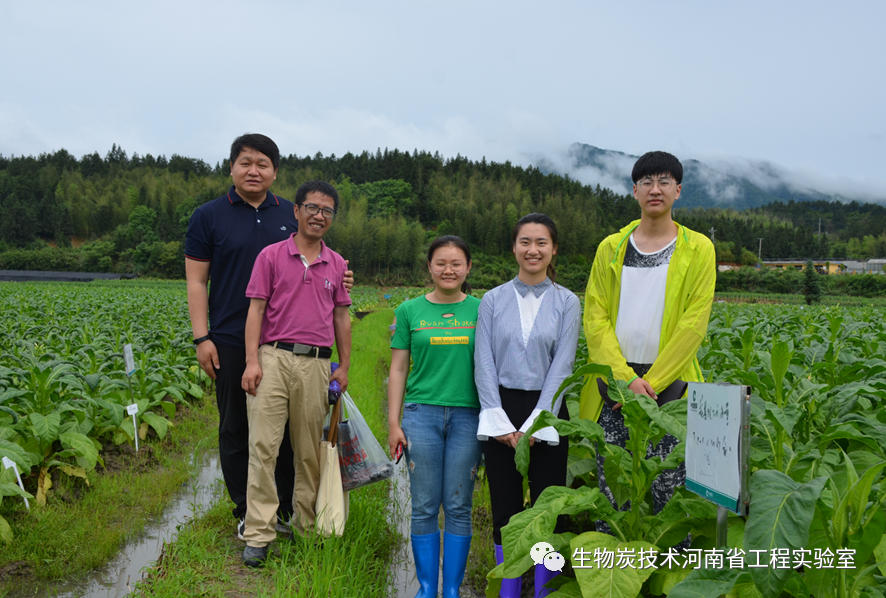
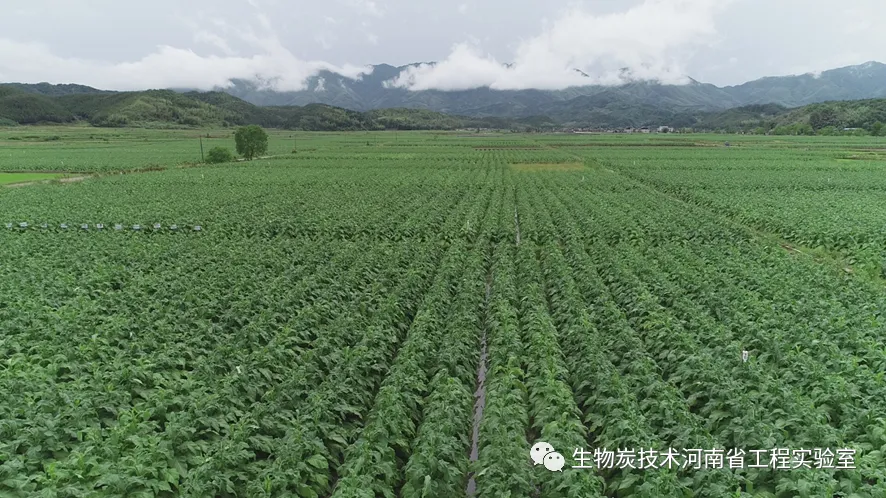
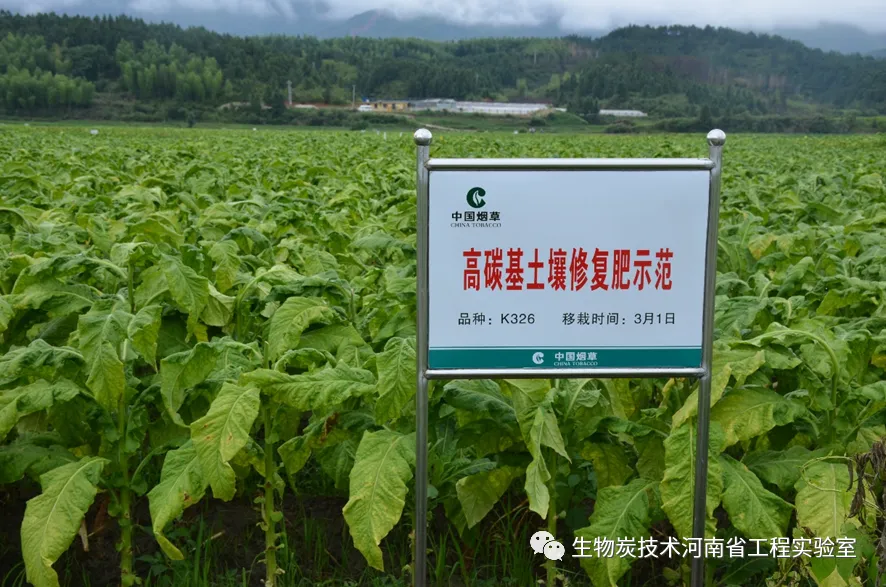
Acknowledgment: This study was funded by the science and technology project of Fujian Tobacco Company, “Research on the Carbon and Nitrogen Distribution Characteristics of Tobacco-Planting Soil in Nanping and Key Technologies for Improving Tobacco Leaf Quality” (NYK2017-02). Special thanks to Nanping Tobacco Company, Tobacco Research Institute, and Shaowu City Company for their strong support during the experiment!
Note: Latin names of bacterial phyla (e.g., Firmicutes, Chloroflexi) and technical terms (e.g., “rhizosphere,” “LEfSe analysis”) follow standard microbiological and statistical conventions. Units (e.g., t/hm², mg·kg⁻¹) and temperature notations (°C) are consistently translated for scientific accuracy.
